- News
- Reviews
- Bikes
- Components
- Bar tape & grips
- Bottom brackets
- Brake & gear cables
- Brake & STI levers
- Brake pads & spares
- Brakes
- Cassettes & freewheels
- Chains
- Chainsets & chainrings
- Derailleurs - front
- Derailleurs - rear
- Forks
- Gear levers & shifters
- Groupsets
- Handlebars & extensions
- Headsets
- Hubs
- Inner tubes
- Pedals
- Quick releases & skewers
- Saddles
- Seatposts
- Stems
- Wheels
- Tyres
- Tubeless valves
- Accessories
- Accessories - misc
- Computer mounts
- Bags
- Bar ends
- Bike bags & cases
- Bottle cages
- Bottles
- Cameras
- Car racks
- Child seats
- Computers
- Glasses
- GPS units
- Helmets
- Lights - front
- Lights - rear
- Lights - sets
- Locks
- Mirrors
- Mudguards
- Racks
- Pumps & CO2 inflators
- Puncture kits
- Reflectives
- Smart watches
- Stands and racks
- Trailers
- Clothing
- Health, fitness and nutrition
- Tools and workshop
- Miscellaneous
- Buyers Guides
- Features
- Forum
- Recommends
- Podcast
TECH NEWS
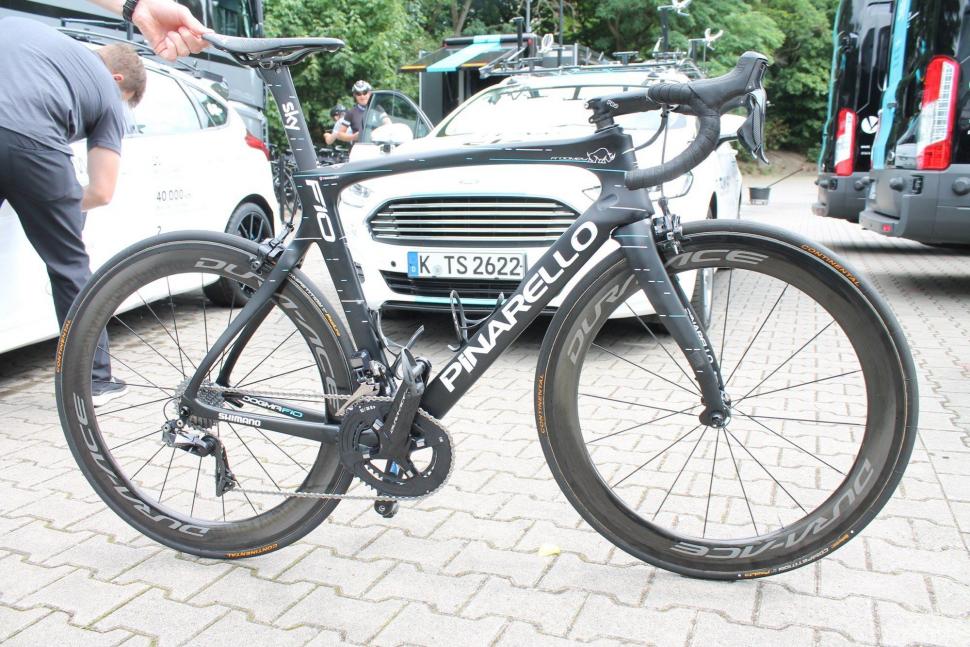 Tour de France 2017 Chris Froome Pinarello Dogma F10 - 1.jpg
Tour de France 2017 Chris Froome Pinarello Dogma F10 - 1.jpgTour Tech 2017: How Team Sky’s bikes have changed over the past 5 years
Five years is a long time in bike racing. Back in 2012 Team Sky won the Tour de France for the first time and Chris Froome is looking good to repeat the feat in 2017. We thought it would be interesting to compare the team’s bikes from five years ago to those raced today.
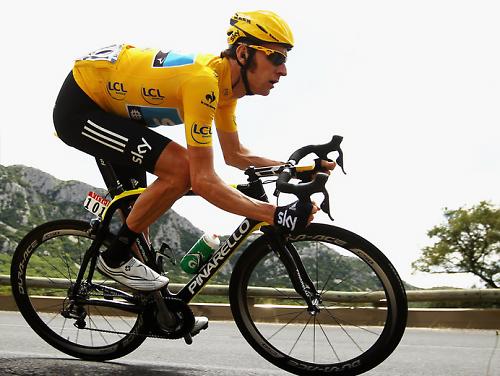
In case you’ve forgotten, 2012 was the year that Bradley Wiggins (above) won the Tour de France, the first Briton ever to do so, aided and abetted by a certain Chris Froome who finished second overall. Wiggins won both individual time trials and Froome won Stage 7 to La Planche des Belles Filles.
Mark Cavendish was on Team Sky that season and won three stages in the Tour de France, including the final stage finishing on the Champs-Élysées. It was a big, big year for the team.
Team Sky were riding Pinarello Dogma 2s in 2012 (this is Cav's bike, above, and Wiggins' Dogma 2 below) with Wiggins racing the final stage on the Dogma 65.1, new at the time, made from stiffer type of carbon fibre.

Have a look at Team Sky's 2012 Tour de France bikes here.
The Dogma 2 was Pinarello’s top line road machine with a frame made from Toray’s 60HM1K carbon.
The Onda fork was made from the same material, coming with a tapered 1 1/8in to 1 1/2in steerer for a little extra stiffness compared to a standard straight steerer.
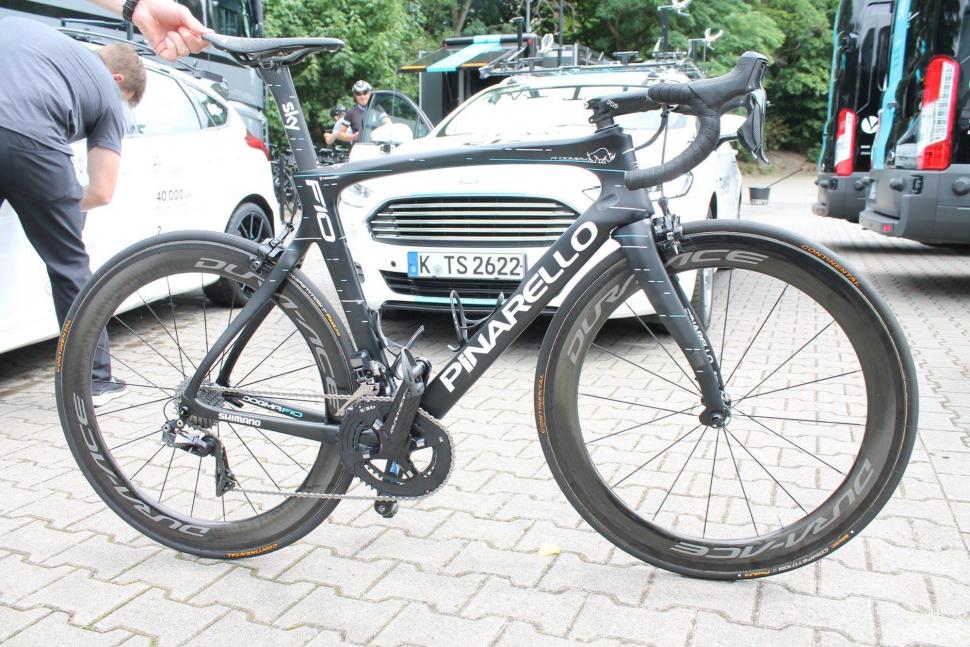
Team Sky are, of course, still using the Dogma but now it’s the F10 (this is Chris Froome's bike, above), Pinarello having been through the 65.1 and the F8 versions since 2012. It’s recognisably related to the Dogma 2 although the wavy chainstays, seatstays and fork legs (below), said to have improved the ride damping for increased comfort, have been toned down considerably. There’s still a bit of wiggliness (it’s a technical term!) going on there but today’s Dogma isn’t as far out there as a love it or hate it design.
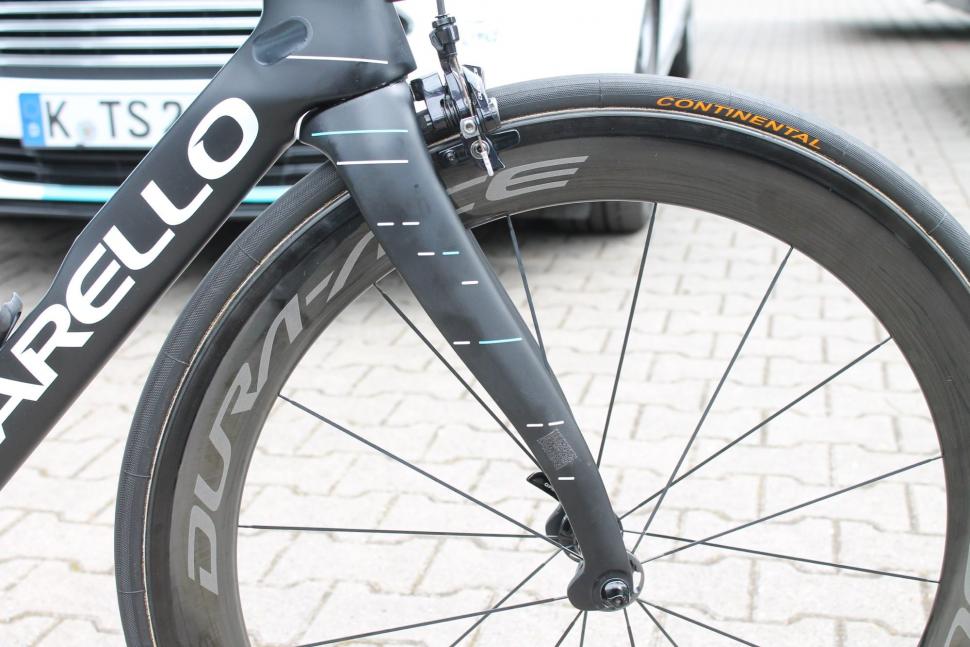
Check out Chris Froome’s Pinarello Dogma F10 here.
Today’s Dogma is mainly made from Toray T1100 1K carbon and the Onda F10 fork still comes with a 1 1/8in to 1 1/2in steerer. 
Pinarello has stuck with an Italian threaded bottom bracket too (this is Wiggins' Dogma 2, above), whereas every other brand ridden in the pro peloton uses a pressed in BB these days.
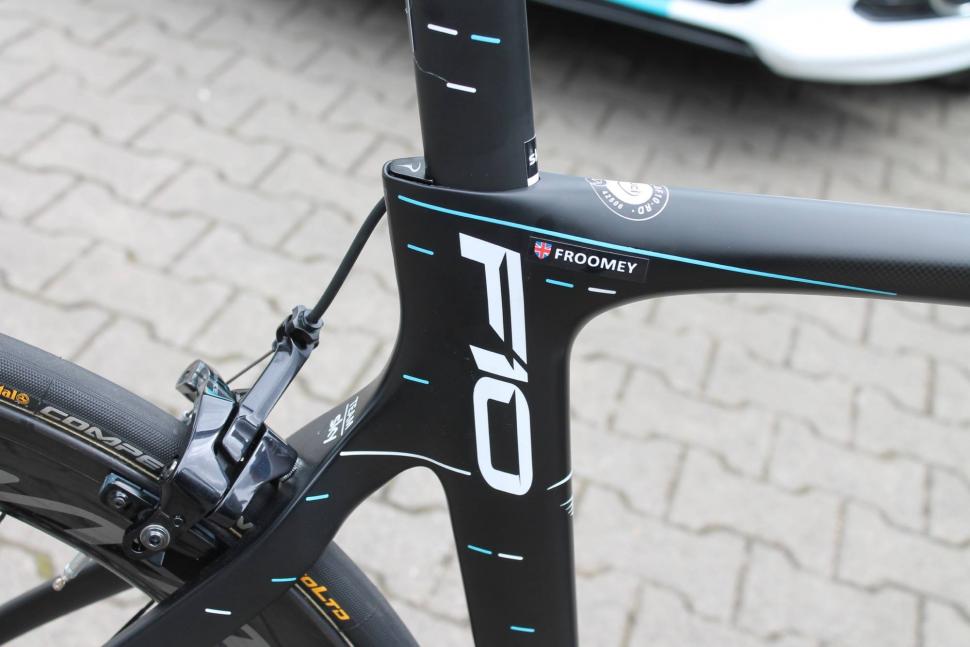
Many other frame features have been altered, though. The pro cycling world is now even more obsessed by aerodynamics than it was five years ago and you can easily identify features of the Dogma F10 designed to reduce drag. All of the frame tubes are slim and deep in profile, as are the fork legs and the seatpost, and the seatstays meet the seat tube quite low (above) to reduce the size of the frontal area and to manage airflow around the rear wheel.
Check out our review of the Pinarello Dogma F8, the version that came before the current F10.
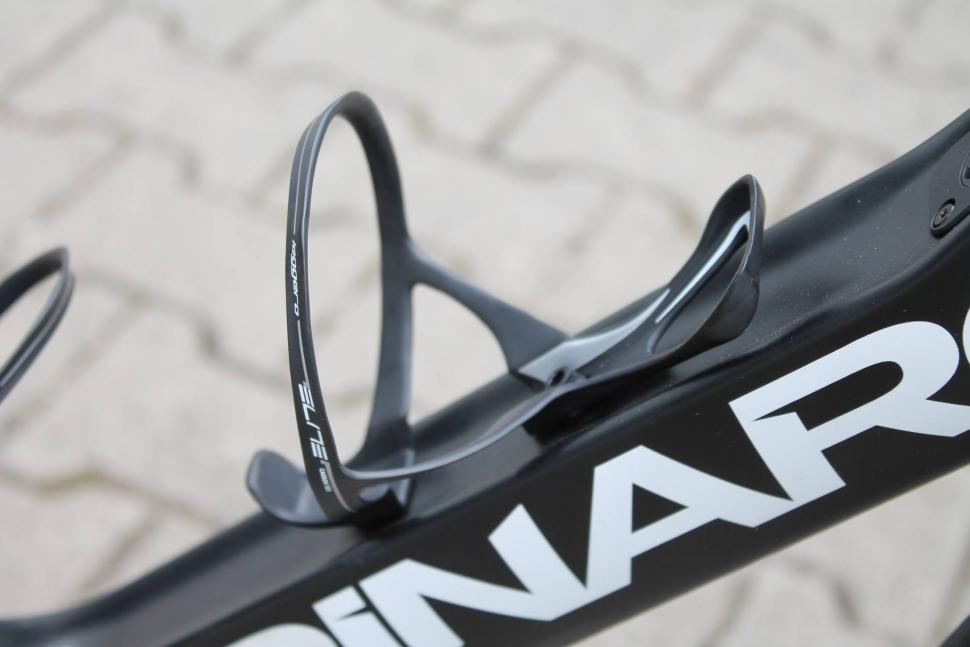
Pinarello claims that the aerodynamic drag of the F10 has been reduced by up to 20% from that of the previous generation F8 (largely thanks to a new down tube, above, borrowed from the Bolide time trial bike, that’s designed to shield the water bottles from the airflow) never mind compared to the Dogma 2.
As is usually the case, Pinarello says that it has made progress in terms of stiffness and lightness too. The F10 has a claimed weight of 820g for a raw 53cm model while the Dogma 2 was a comparatively portly 920g for a 54cm size. However, the complete bike must still weigh at least 6.8kg to meet the UCI's regulations.
Pinarello made the stays and down tube of the Dogma 2 asymmetric (the Dogma has been asymmetric since 2009) to take account of the higher forces on the driveside of the frame compared to the non-driveside.
The Dogma F10 is still asymmetric, the down tube having been shifted 2mm towards the right compared to the F8 in order to provide extra stiffness on that side.
Find out more about the Pinarello Dogma F10 here.
Sky has used Shimano Dura-Ace Di2 groupsets with electronic shifting since the team was established in 2010. Its 2012 bikes were fitted with 7900 Series Dura-Ace (7970 for the electronic components) whereas today it’s the new 9100 Series (9170 for the electronic components). 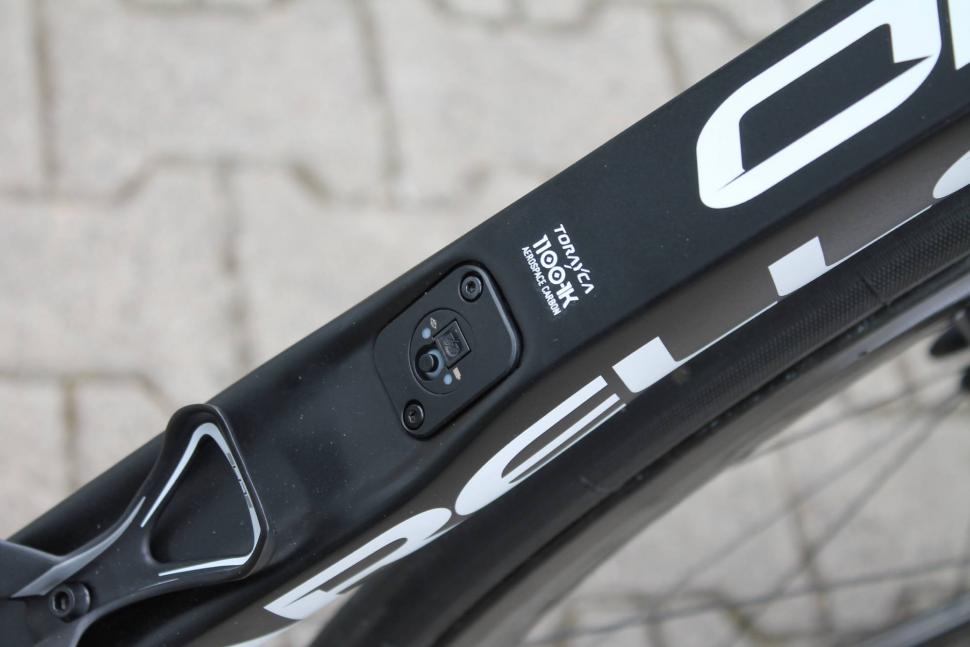
Dura-Ace is now 11-speed whereas it was still 10-speed in 2012 and Di2 is far more customisable. The junction box is now hidden away in a compartment in the Dogma F10’s down tube (above) rather than out in the airflow.
The chainset spider is now four arm rather than the five arm version (above) in order to save weight, and the spacing between those arms is uneven to keep the stiffness where it’s most needed.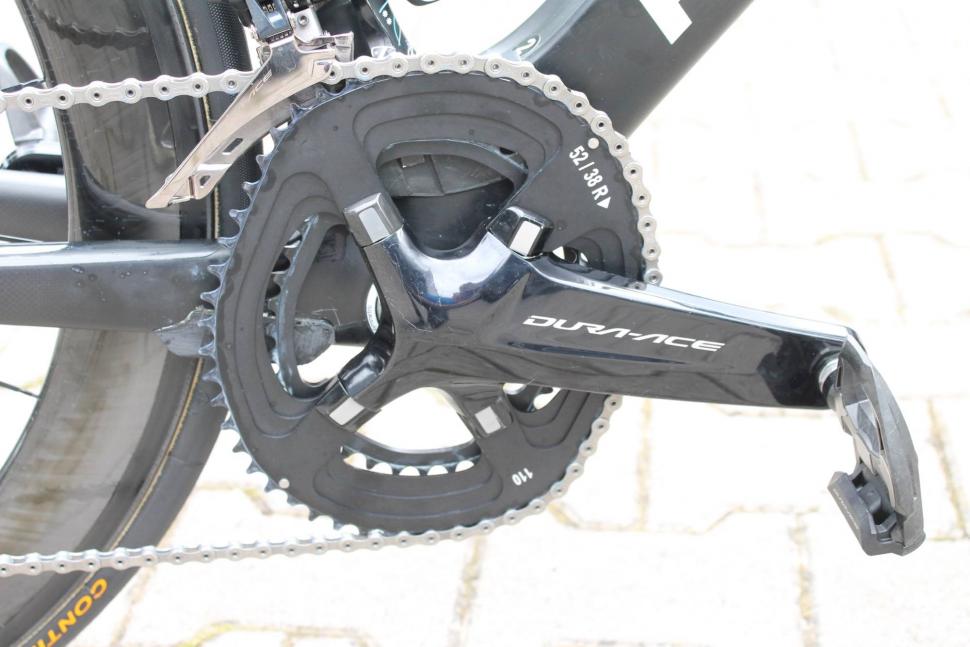
The crank arms, still aluminium, are also chunkier and asymmetric now, the idea being to add stiffness. This is Chris Froome's chainset, above, fitted with Osymetric non-round chainrings. Wiggins was also using Osymetric chainrings in 2012.
Team Sky used Dura-Ace wheels in 2012 but they’re now different depths. The C50s (pictured above on Mark Cavendish’s bike) had 50mm deep rims whereas Team Sky now race mostly on C40s (37mm deep) and C60s (60mm deep, below). 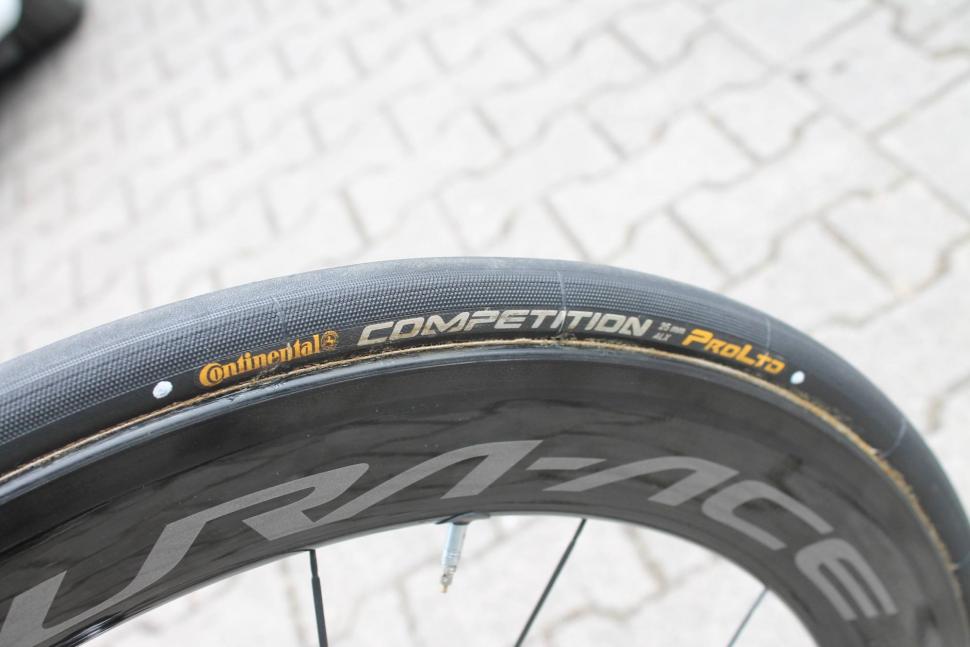
Shimano’s new wheels have also increased in width from 24mm to 28mm to work better with the wider tyres that most riders are using these days. Shimano claims that C60s are considerably more efficient than C50s in what it calls 'real world' conditions.

Sky’s 2012 bikes were fitted with SRM power meters (this is Wiggins' chainset, above) but the team has been using Stages crank-based power meters since 2014.
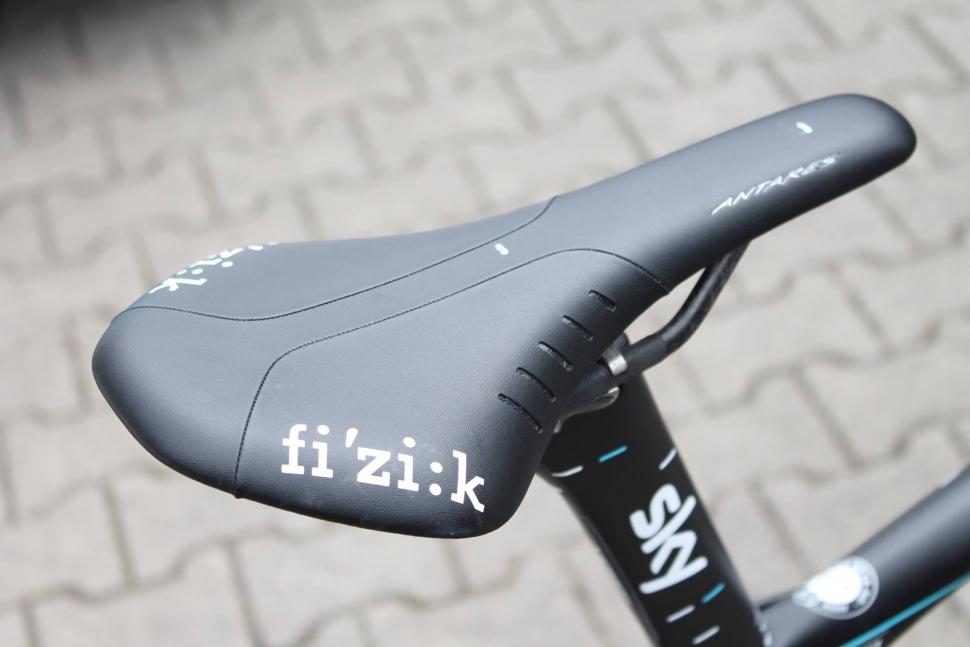
Team Sky race on saddles from Fizik in 2017, as they did in 2012. This is Chris Froome's Antares (above).
The Italian brand has changed the way its range is structured but some team riders still use carbon railed Ariones like Mark Cavendish's (above).
Overall, Team Sky's 2017 bikes have a lot in common with those of 2012, as you'd probably expect, but a lot has changed too, mostly because of manufacturers looking to reduce drag. With the importance of aerodynamic efficiency and the UCI unlikely to alter its 6.8kg minimum weight limit for bikes any time soon, you can expect brands to carry on focusing on this area into the future.
Will we ever see Team Sky racing on the disc version of the Pinarello F10 that was announced yesterday? We'll just have to wait to see how things develop in the pro peloton, but certainly not in this year's Tour de France.
Click here for more Tour de France tech stories.
Mat has been in cycling media since 1996, on titles including BikeRadar, Total Bike, Total Mountain Bike, What Mountain Bike and Mountain Biking UK, and he has been editor of 220 Triathlon and Cycling Plus. Mat has been road.cc technical editor for over a decade, testing bikes, fettling the latest kit, and trying out the most up-to-the-minute clothing. He has won his category in Ironman UK 70.3 and finished on the podium in both marathons he has run. Mat is a Cambridge graduate who did a post-grad in magazine journalism, and he is a winner of the Cycling Media Award for Specialist Online Writer. Now over 50, he's riding road and gravel bikes most days for fun and fitness rather than training for competitions.
Latest Comments
- David9694 25 min 9 sec ago
Great to see redruthboy28 and jonnybar5705 getting the credit they deserve for their contributions to journalism:...
- Rendel Harris 40 min 7 sec ago
I tell you what, I'll take a leaf out of your book, I'll just make up a figure (for example, off the top of my head, that 40% of the population of...
- ktache 1 hour 19 min ago
Caught the last few days, hadn't realised they were showing it to start, shame....
- chrisonabike 1 hour 36 min ago
That's a bit like refusing to get a sofa because you've got cats or dogs "because then every other inch of the house becomes explicitly for animals...
- dubwise 2 hours 5 min ago
The good old uci at it again. del Torro fined for bringing the sport into disrepute because of a broken zip on his skinsuit. Beggars belief.
- leedorney 2 hours 17 min ago
Scotland's a beautiful place with beautiful people! - done hol there recently and the roads are fantastic, cool tho 👍
- Mr Anderson 2 hours 27 min ago
I decided to delete my posting immediatley after it was made....
- Jvtrigo 2 hours 51 min ago
Just got my set, the actual weight for rim brakes are 692g front wheel and 860g rear wheel. So a total of 1,552g (with rim tape, and no valve).
- OnYerBike 2 hours 59 min ago
Obviously it's a good thing that manufacturers are trying to phase out PFAS and other damaging chemicals. That said, the reason that Shakedry "set...
- eatmorefruit 3 hours 32 min ago
Unfortunately I too had problems with the Techalogic camera - worked well for a week then started to turn itself off despite being fully charged....
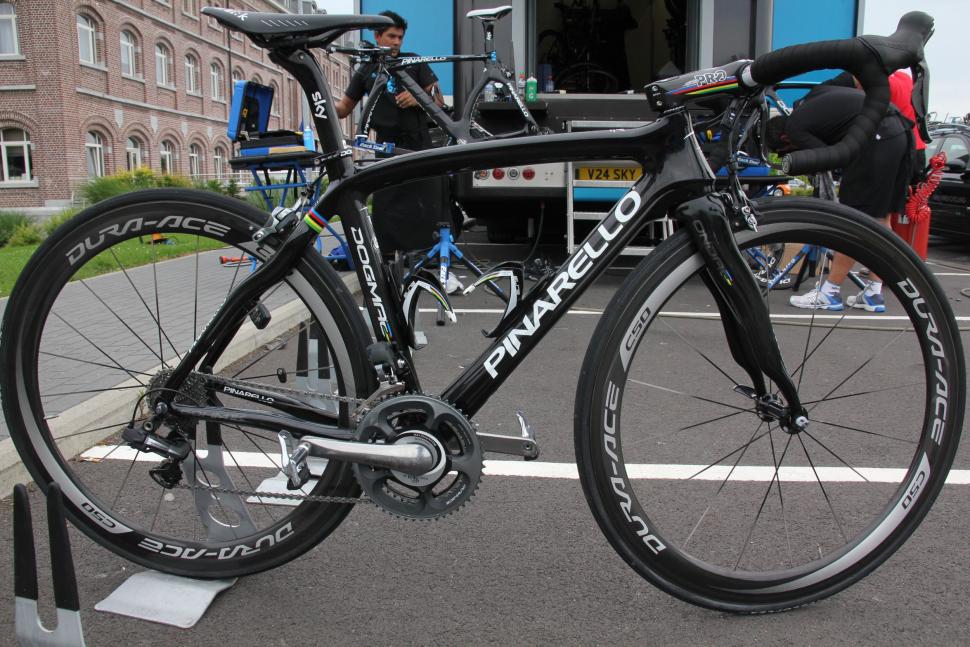
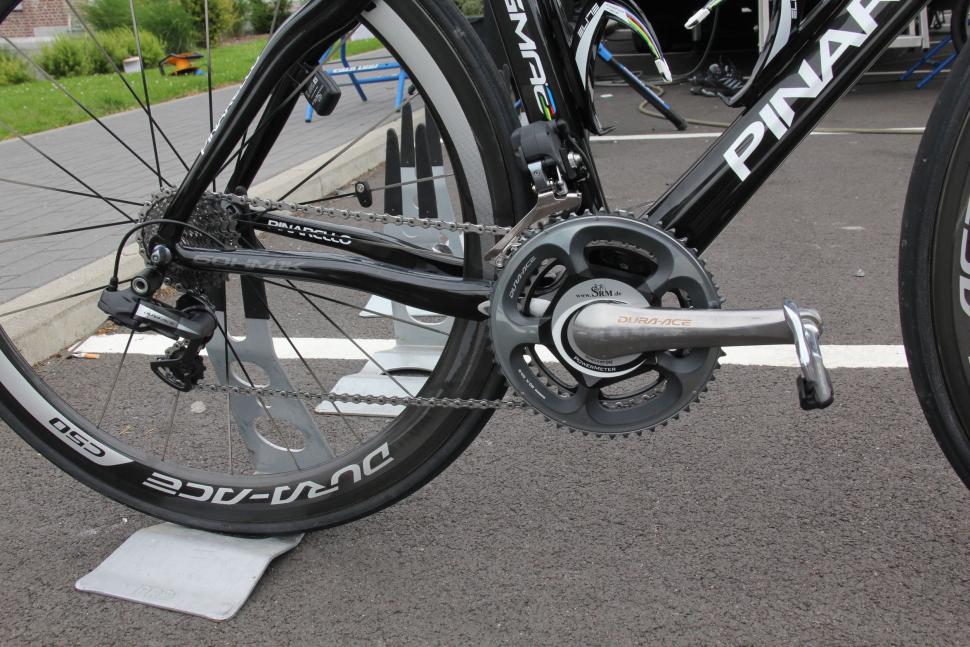
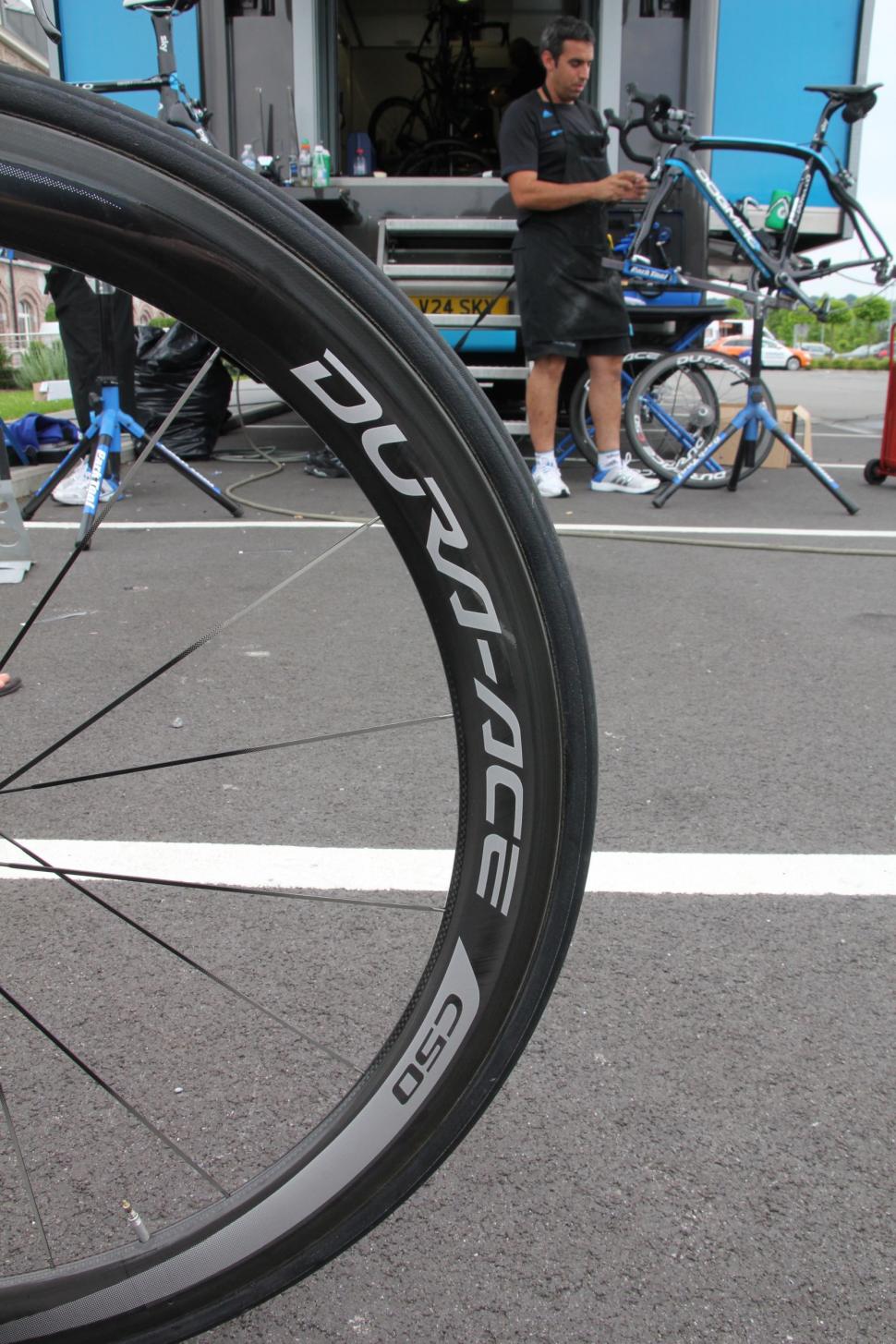
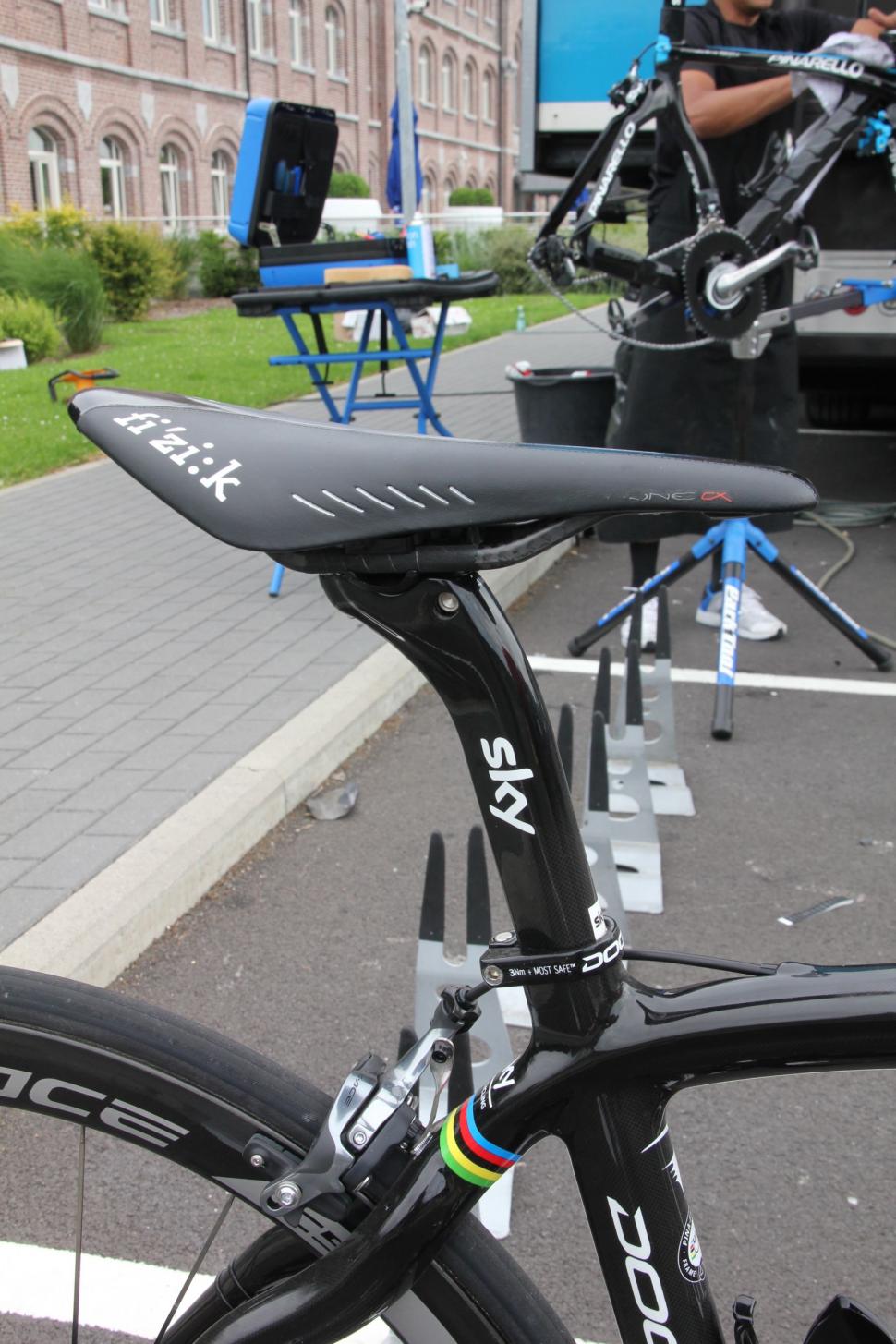
Add new comment
18 comments
Blimey, these Pinarellos look dated quicker than a Audi don't they
Skylark popping out for elevenses.
b3ee184670fa20a243ae94041ca3bc7a--dandy-the-history.jpg
Pinarello have been at the forefront of innovative bike design since the introduction of Onda forks on their ally frames if I remember correctly. I'm still on the look-out for a decent Telekom-pink frame and have just the groupset to go with it...
you mean the onda forks that basically ripped off the wavy design from 60+ years back as the likes of Hetchins and Bates used?
you mean the onda forks that basically ripped off the wavy design from 60+ years back as the likes of Hetchins and Bates used?
[/quote]
Wow...I'm a cycling geek but I don't even have books that go that far back :-)... I'll look them up.
Dura ace looks went down hill after the 7410 cranks. but im old
How about instead of a time trial prologue that a short parade up a catwalk is arranged with some time bonuses for who has the shiniest bicycle.
Or have some people, maybe ever so slightly misunderstood what the purpose of these machines is?
I'm not sure it's that simple. I think that most bikes in the pro peloton are designed with performance in mind, yet there are many different looks, from the relatively trad looking Cannondale Supersix Evo to the swoopy and chunky Trek Madone, so aesthetic choices are obviously made at some point in the design process. I don't think it's unreasonable to judge a bike by how it looks, especially a bike that one is very unlikely to ever ride!
Blimey, the 2012 Dogma hasn't lost any of its hideousness. And the Osymetric chainrings are another abomination on top of that!
The Shimano crank spider is so ugly. Really, really ugly. It's ugly when used with the faired Shimano rings that flare out to meet the shoulders of the spider. Even uglier when you use other, normal, flat rings which leave the spider just ending abruptly.
Maybe that's just me.
(Edit: Put the subject into the comment, cause the subject doesn't actually get shown!? Didn't make sense otherwise).
DA went downhill after 7700 in the looks department, 7800 was fantastic functional wise and the STIs absolutely amazing (easily as good as 9000/1 mechanical) but lost a lot of their aesthetic value for me. Fitted with a power meter they were/are ugly as sin.
The newer wider/chunkier DA 9100 cranks are not a million miles away from the chunky FC-7800-C in looks and was designed for the 7900 series that was fitted to the 2012 Pina.
DA Carbon chainset.JPG
Frames, forks and chainsets are all very well, but what about their padded envelope supplier? We know they were using Jiffy back in 2011, but surely by 2017 they would have taken advantage of the marginal gains to be had from something like Mail Lite?
They are using these now:
http://www.cafepress.co.uk/+iffy+bags
That 2012 frame wouldn't look out of place today!
You just made my day. Thank you.
I would mostly agree.
The seat tube cluster and seat post clamp look very dated to my eye though. Maybe I'm just being picky.
I think you will find it would still look out of place today. It did then, and it still does today.